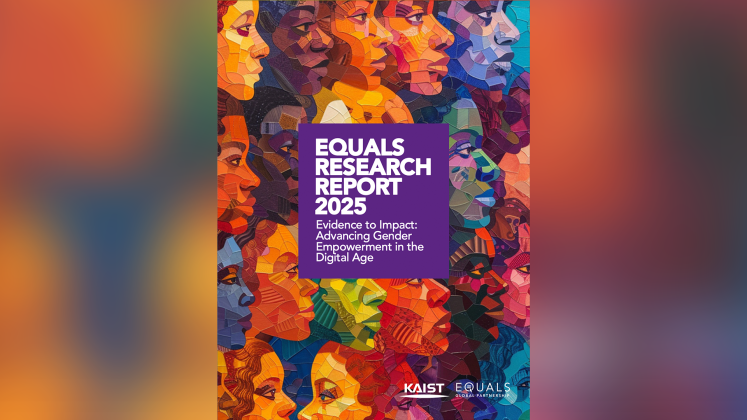Researchers from the United Nations University Institute in Macau (UNU Macau) have contributed three chapters in the EQUALS Research Report 2025: Evidence to Impact – Advancing Gender Empowerment in the Digital Age, launched at the World Summit on the Information Society (WSIS) Forum 2025. The report, a flagship publication by the EQUALS Global Partnership, aims to bridge the gender digital divide and advance women’s meaningful participation in the digital economy and society.
In Chapter 4.1, Exploring Gender Divides in Cybersecurity from a Capabilities Approach, Dr. Jaimee Stuart, Senior Researcher and Team Lead, UNU Macau, and Dr. Mamello Thinyane, Associate Professor, University of South Australia, draw on Nobel laureate Amartya Sen’s capabilities approach and examine how systemic gender-based marginalization shapes women’s and girls’ cybersecurity experiences.
The study highlights that while women face heightened risks of technology-facilitated gender-based violence (TFGBV), they remain significantly underrepresented in cybersecurity leadership and decision-making roles. The authors call for a paradigm shift, toward gender-aware risk assessment models that prioritize not only technical protection but also social, institutional, and environmental factors that enable women to thrive in digital spaces.
In Case Study 4.3, Leverage Digital Technology for Gender-Inclusive Peacebuilding in Southeast Asia, Dr. Min Yang, Researcher, UNU Macau, and Dr. Jaimee Stuart examine how civil society organizations (CSOs) are harnessing social media to advance the Women, Peace and Security (WPS) agenda across the region.
Their findings show that CSOs creatively use text, visuals, and storytelling to amplify women’s voices, foster leadership narratives, and mobilize communities. However, the research also identifies significant challenges, including online gender-based violence, misinformation, and fragmented digital strategies that hinder coordinated action. The case study underscores the urgent need for safer digital environments and strategic coordination to ensure that digital tools truly serve inclusive peacebuilding.
In Case Study 4.4, Understanding Cyber-Resilience Among Women Civil Society Organisations in Southeast Asia, Dr. Stuart and Dr. Thinyane investigate the digital security challenges faced by women-led CSOs. Despite relying heavily on digital tools for advocacy and service delivery, these organizations often operate with limited technical support and face disproportionate cyber threats due to their gender-focused missions.
The study finds that while over half of surveyed organizations have basic cyber-resilience measures, such as staff training and incident reporting protocols, fewer than half feel confident in their ability to recover from cyberattacks. The researchers emphasize that true cyber-resilience must integrate human, social, and gender dimensions, advocating for holistic support systems that go beyond technical fixes.
Read the full EQUALS Research Report 2025 here.


